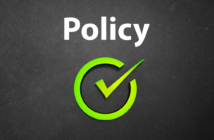When it comes to data, some in the industry claim you’re better off not knowing what your carrier’s numbers look like.
The argument goes something like this, “How can we be held responsible for something we didn’t know about?”
Advocates of this approach argue that it’s better to pretend they didn’t know the data was there than to take the time to gather the data and try to use it properly.
Unfortunately, this argument is flawed. Many people — including plaintiffs’ attorneys, their experts, and safety investigators — know what data you have available to you based on the vehicles and systems you use, such as ELDs. These people also know what you can, and should, be doing with the data.
One question that will undoubtedly come up after an incident is whether it’s reasonable to expect management at a carrier to use the data that’s available to them to fix problems and improve the safety of the operation. Let’s take a quick look at what would be considered reasonable…
If you have a driver who is not following the hours-of-service regulations based on roadside inspection and ELD data, would it be reasonable to expect you to discover this and correct the driver? Most of the industry would agree that it is reasonable. The same would be true of a driver who has excessive hard braking incidents or any of the other issues you could have known about had you been looking at your data.
So what happens when a driver who is having issues is involved in a crash due to behavior you should have known about? You’ll likely find yourself involved in painful and costly litigation. This is when investigators start throwing out terms such as knowing and willful, and plaintiffs’ attorneys start talking about negligent supervision and entrustment.
These are not terms you want being used to describe your carrier’s management!
Knowing what’s in your data, how to find it, how to sort it to find the nuggets of actionable information, and how to use those nuggets to make improvements is how you improve your company’s safety and operations. It’s also how you defend your company if one of your drivers is involved in an accident.
For more information about assessing your company’s performance using the Compliance, Safety, Accountability (CSA) program, download our free CSA: A Company Assessment resource.



